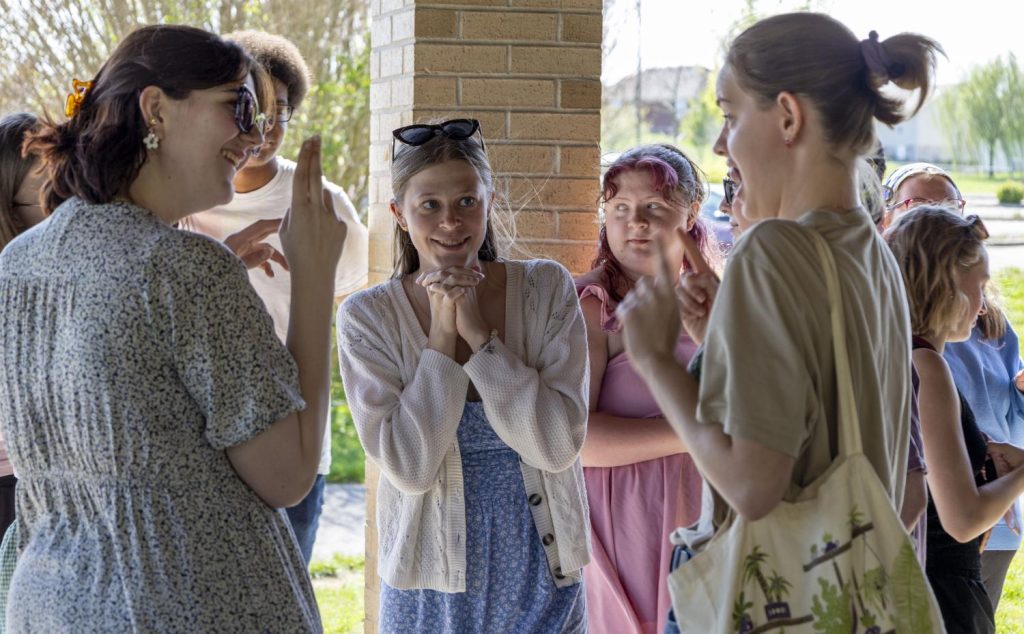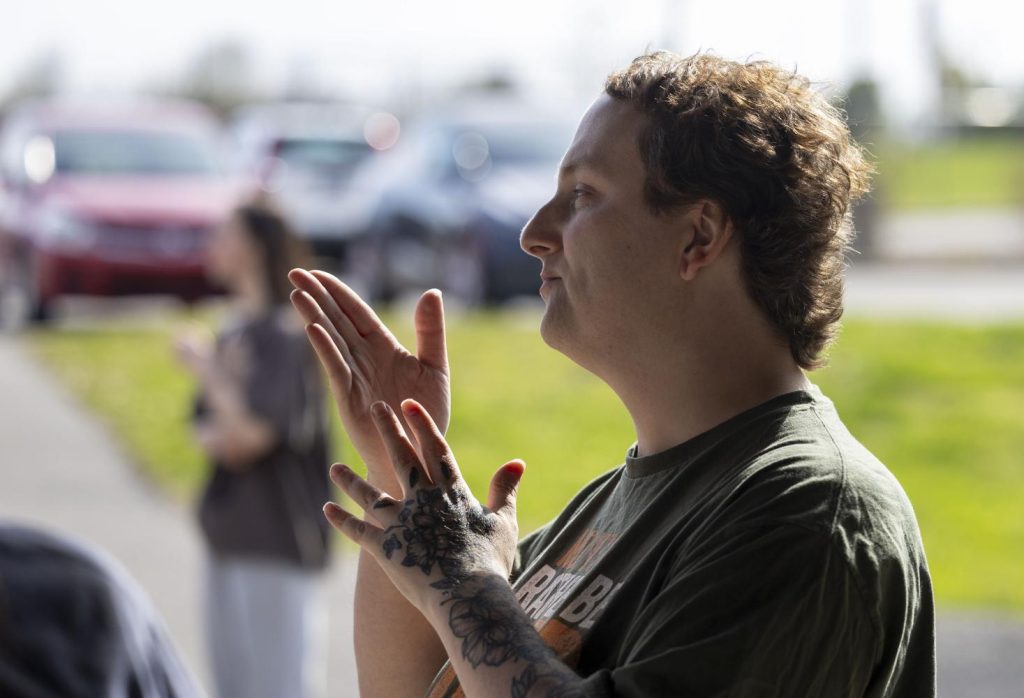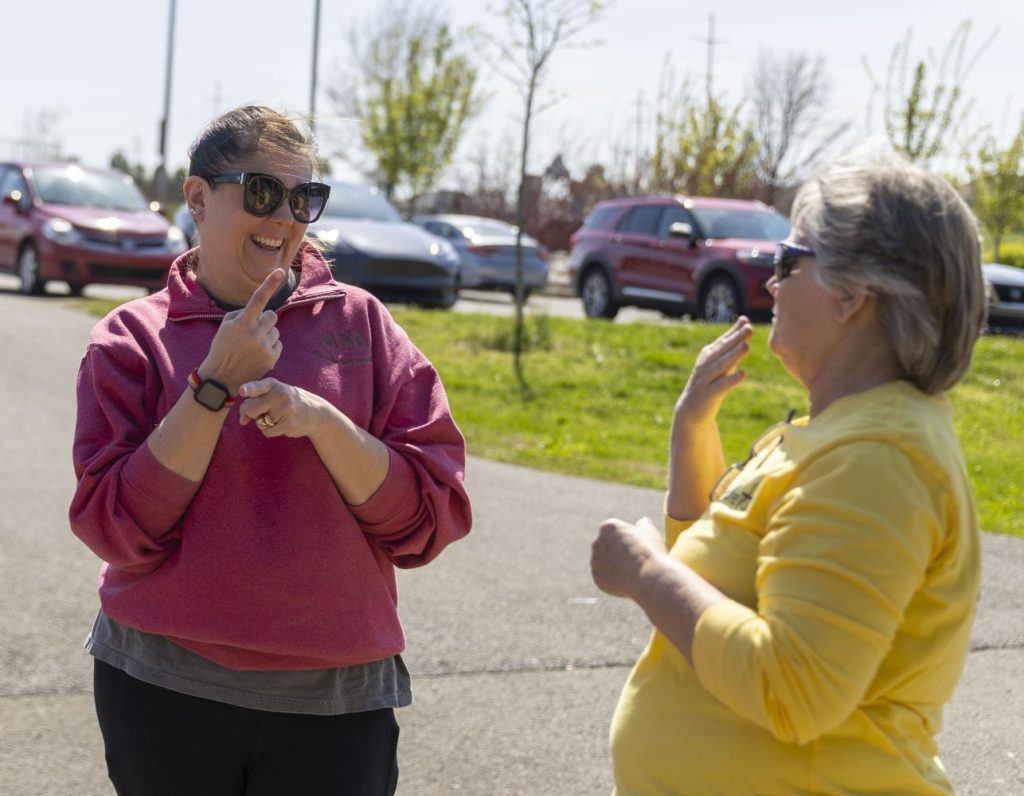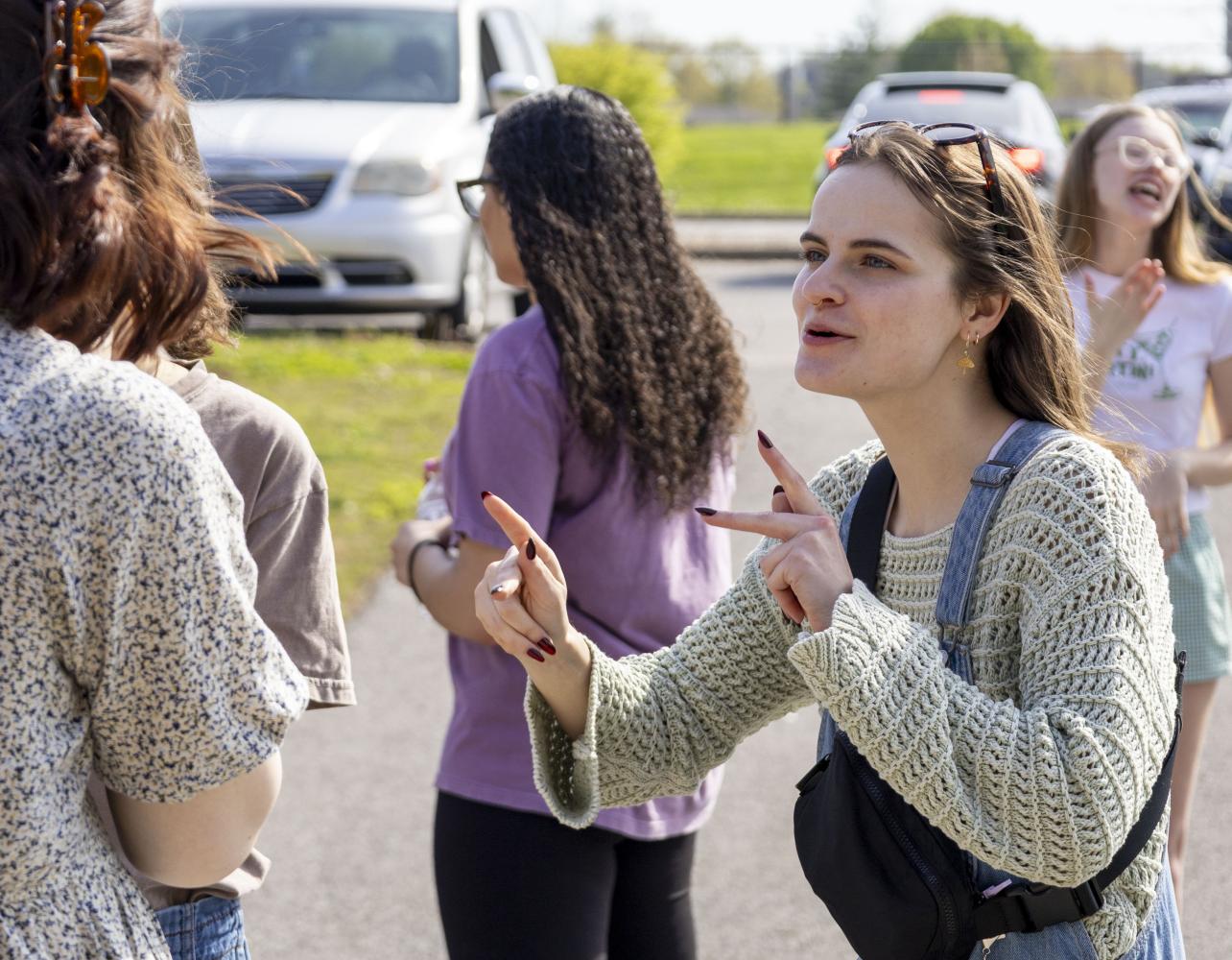In a world of verbal languages, WKU’s American Sign Language Organization (ASLO) advocates for the deaf and hard-of-hearing community.
Senior Rowan Finley, who has a minor in American Sign Language, from Spring Hill, Tennessee, said he has been involved with ASLO since their freshman year. Currently, Finley said he serves as the public relations chair on the ASLO board.
“The ASL program here doesn’t just teach you a language; it teaches you how to be a deaf advocate and ally to the deaf community,” Finley said. “It’s not our language, it’s their culture.”

Senior psychology major Piper Poteet from Bowling Green is ASLO’s executive chairperson. Poteet has been learning ASL since high school and said she feels the program has set her up for the future.
“My big goal with my psychology degree is to work with deaf children who have hearing parents,” Poteet said. “Most deaf children are born to hearing parents, and the majority of those parents don’t learn sign language.”
Poteet said her favorite part of the organization is seeing students learn, whether it be in the lab or at ASLO.
“You see someone come in the first meeting and they are sitting there in the back not doing anything, and then by the end they are up in the middle playing a game,” Poteet said. “They are having fun. Seeing people come out of their shells is one of my favorites.”
Audrey McKnight, a senior English major, said she was drawn to WKU because of the ASL program. McKnight said she has been a part of ASLO for two years, both as a regular member and board member. McKnight said she currently serves as the membership chairperson and will serve as the executive chairperson in the fall.
As executive chairperson, member meetups are something new that Poteet said she started this semester with the organization. She said it allows students in the ASL program to connect and apply their skills outside of the classroom.
“Learning American Sign Language is not what I expected it to be. You are thrown headfirst into a voice-off setting,” McKnight said. “It’s exciting but nerve-wracking at first.”
McKnight said knowing ASL is not required in order to be involved with ASLO. She said most members start either by taking an introductory course in ASL or immediately joining with no knowledge of the language.
“I always knew I wanted to take [ASL] classes,” Finley said. “I would harass the head of the ASL department, Ashley, over and over, asking if I can join.”
Finley said ASLO has an annual picnic in the spring where everyone in the club gathers with the deaf and hard-of-hearing community in Bowling Green. It is a time to connect and apply what they have learned that semester.
“ASLO builds community, and we provide resources; it’s how we get people involved,” Poteet said. “The language is just so beautiful, and the culture around it. The deaf community is so welcoming, and once you start learning, you don’t want to stop.”


Natalie Mclean, a junior communication studies major from Louisville, said that the program has been very supportive. Mclean is a peer mentor for ASL students. Mclean said she wanted to learn ASL because growing up, she had a deaf man who lived down the road from her, and they were never able to communicate.
“It’s a great opportunity to meet people and to learn a different way of life,” Mclean said. “Be open-minded, go into it knowing that you are going to make mistakes, you are going to struggle. Don’t be hard on yourself, you are learning a new language.”
Mclean said she was recently elected as ASLO’s outreach chairperson. Mclean said she has been able to meet a lot of people in the deaf community. She is responsible for reaching out to deaf guest speakers for the Deaf Culture Series (DCS).
“I wanted to be a friendly face, I have loved getting to meet all the deaf people,” Mclean said. “I can’t wait to reach out to more people from different backgrounds that we might not have had before.”


